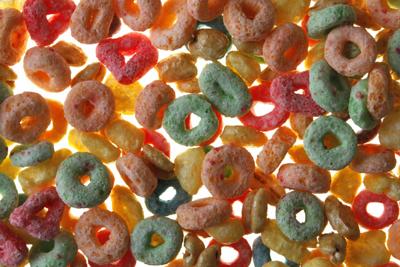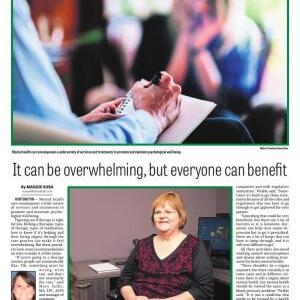Lobbyists for the food and beverage industry are fighting a bill that would ban synthetic dyes in food, paying thousands of dollars for ads that say it will and result in empty grocery store shelves. Sixty percent of grocery products could be pulled, they say.
Republicans behind the legislation say the food industry is using scare tactics and “““Į╩ėŲĄ£choosing poison over profit.“““Į╩ėŲĄØ
“““Į╩ėŲĄ£If you can“““Į╩ėŲĄÖt make a product that doesn“““Į╩ėŲĄÖt poison children, then don“““Į╩ėŲĄÖt put it on our shelves. I think that“““Į╩ėŲĄÖs the message we“““Į╩ėŲĄÖre sending,“““Į╩ėŲĄØ said Sen. Jason Barrett, R-Berkeley.
The measure, , would ban a list of artificial colorful dyes in foods sold in West Virginia stores and in school meals by 2028. Bill supporters say the synthetic dyes, like Red No. 3, are unnecessary, dangerous and the cause of some . There are natural and safer alternatives, they say.
The House of Delegates and Senate had l with bipartisan support, then the House the measure Thursday, removing language that would have penalized anyone who was selling a food item under $5,000 that contained the banned dyes.
“““Į╩ėŲĄ£I want to make sure that Toby and Edith aren“““Į╩ėŲĄÖt prosecuted for selling something at a bake sale,“““Į╩ėŲĄØ said Delegate Evan Worrell, R-Cabell.
The Senate has to sign off on the House“““Į╩ėŲĄÖs changes before it would head to Gov. Patrick Morrisey“““Į╩ėŲĄÖs desk for consideration. Barrett, who has spearheaded efforts on the bill , expects his colleagues, then Morrisey to approve it. It would make West Virginia the first state in the nation to pass a sweeping ban on food dyes.
“““Į╩ėŲĄ£I“““Į╩ėŲĄÖm confident that he“““Į╩ėŲĄÖs going to sign the bill,“““Į╩ėŲĄØ Barrett said.
Americans for Food & Beverage Choice is pushing for Morrisey to veto the bill should it reach his desk. The group has spent more than $19,000 in radio ads in the last week, according to filings with the Federal Communications Commission, and they“““Į╩ėŲĄÖre expected to spend more on ads in the coming days. A text message ad campaign is underway, as well.
The radio ads say that politicians go “““Į╩ėŲĄ£way too far“““Į╩ėŲĄØ with this ban and that there are more sensible solutions.
“““Į╩ėŲĄ£This is a law that would impact six in 10 grocery store items, effectively making them illegal. It will lead to higher prices, fewer choices and empty shelves,“““Į╩ėŲĄØ said Stacie Rumenap, spokesperson for Americans for Food & Beverage Choice. “““Į╩ėŲĄ£The alternative ingredients simply don“““Į╩ėŲĄÖt exist to scale.“““Į╩ėŲĄØ
The West Virginia Beverage “““Į╩ėŲĄsociation also opposes the legislation, saying the supply of alternative colors simply does not exist and will take years to catch up.
“““Į╩ėŲĄ£This bill will only succeed in one thing: emptying grocery store shelves over ingredients that are proven safe and approved worldwide “““Į╩ėŲĄ” We ask Gov. Morrisey to veto this misinformed bill and protect our economy and West Virginians“““Į╩ėŲĄÖ freedom to decide what“““Į╩ėŲĄÖs best for their family. Let“““Į╩ėŲĄÖs work together on pragmatic solutions to address these concerns,“““Į╩ėŲĄØ they group said in a statement.
A West Virginia nutrition director that the ban would affect only about 30 items currently offered in schools.
Rumenap said the bill also puts jobs at risk due to its potential major disruption to food suppliers.
Donnie Perdue, vice president of the Teamsters local 175 union, said the bill would result in layoffs at all Pepsi and Coca Cola facilities represented by Local 175.
“““Į╩ėŲĄ£Both Pepsi and Coke have said the dye bill would cause a 50% decrease in their current inventory levels,“““Į╩ėŲĄØ he said. “““Į╩ėŲĄ£There has been no economic analysis done to actually see what the impact would be if all these drinks and food is banned from West Virginia “““Į╩ėŲĄ” The states that border West Virginia will be the only winners with this bill as West Virginians travel to their state to get their favorite drinks and food because we no longer have them.“““Į╩ėŲĄØ
Health and Human Services Secretary Robert F. Kennedy Jr. this week that removing artificial food dyes is an urgent priority. “““Į╩ėŲĄ dozens of states are considering legislation to ban food dyes, Barrett said he is “““Į╩ėŲĄ£very confident that the “““Į╩ėŲĄśno food on the shelves“““Į╩ėŲĄÖ“““Į╩ėŲĄØ argument is a scare tactic.
“““Į╩ėŲĄ£Some of these big manufacturers like the American Beverage “““Į╩ėŲĄsociation are saying, “““Į╩ėŲĄśWe“““Į╩ėŲĄÖre gonna pull these products off the shelf.“““Į╩ėŲĄÖ Well, good. That“““Į╩ėŲĄÖs what we“““Į╩ėŲĄÖre trying to do,“““Į╩ėŲĄØ Barrett said.
He notes that Aldi, which in its store-brand items, sells its own version of Pop-Tarts without dyes and its product is cheaper than the Kellogg option. Watermelon juice can be used to color food instead of a synthetic dye.
Delegate Marty Gearheart, R-Mercer, spoke against the measure, saying it removes his ability to choose a product that“““Į╩ėŲĄÖs been approved by the Federal Drug Administration. Products like Gatorade could be pulled from the shelves, he said.
“““Į╩ėŲĄ£They“““Į╩ėŲĄÖre simply not going to ship that product to our state,“““Į╩ėŲĄØ he said. “““Į╩ėŲĄ£It appears to me “““Į╩ėŲĄ” that we want government to do for us and for our children what we won“““Į╩ėŲĄÖt do ourselves, and that is restrict consuming.“““Į╩ėŲĄØ
Worrell, who prioritized the bill as House Health Chair, said it was unfortunate that lawmakers had to step in to regulate food.
“““Į╩ėŲĄ£I don“““Į╩ėŲĄÖt want to run bills like this. I wish we could trust our manufacturers not to put poison in our food,“““Į╩ėŲĄØ he said. “““Į╩ėŲĄ£They have chosen these poisonous chemicals to make a dollar because we allow this. They“““Į╩ėŲĄÖre allowed to do this cheaper.“““Į╩ėŲĄØ
Morrisey“““Į╩ėŲĄÖs spokesperson didn“““Į╩ėŲĄÖt return a request for comment for this story.













